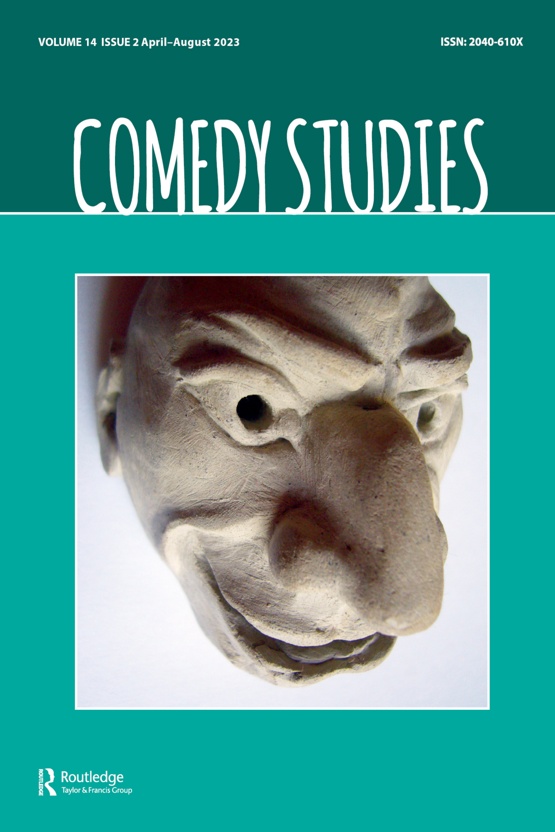Submit a Manuscript to the Journal
Comedy Studies
For a Special Issue on
A Formula for Love: The State of Romantic Comedy
Abstract deadline
31 October 2024
Manuscript deadline
31 July 2025

A Formula for Love: The State of Romantic Comedy
Up until a few years ago, there seemed to be a critical and popular consensus that the romantic comedy was dead. It is not that the film industry stopped producing rom-coms, but rather, that in the 21st century, the contexts of their production shifted: In the aftermath of the #metoo movement, the cultural climate changed and awareness not just for sexism, but also for racism, homophobia, and classism has grown. However, in recent years, perhaps partly due to the rise of streaming services and the opportunities for new ways of production and distribution that they offer, a number of cultural critics have declared a rom-com renaissance, with successes like Crazy Rich Asians (2018) and To All the Boys I’ve Loved Before (2018). Films like Isn’t It Romantic (2019) or Barbie (2023) and TV-series like Crazy Ex-Girlfriend (2015-2019) have stretched genre boundaries by deconstructing one of the rom-com’s defining features – the love plot – and making fun of its most common and beloved tropes.
Whether on the screen or on the page, rom-coms have always elicited a lot of opinions and strong feelings – audiences often either dismiss them as a low form of entertainment, hate them for their (mostly) conservative and normative worldviews, love them for the emotional catharsis they might find in them, or they love to hate them and consider them guilty pleasures. Are we so quick to judge rom-coms because love is always personal, or because relationships are a window into society? Or is it because the rom-com has always been a gendered genre, focusing on female-driven plots, targeting female audiences, and so offering narratives about power dynamics and (in)equality? How far has the rom-com evolved since its ‘golden age’? And what exactly are the functions of humour in the rom-com?
Topics might include (but are not limited to):
- The diversification of the genre in terms of race, class, sexual orientation, able-bodiedness and able-mindedness, age, etc.
- The representation of the love plot, the pursuit of happiness, and the HEA/HFN ending (Happily-Ever-After/Happy-for-Now), especially in the face of heteropessimism
- Relationships between rom-com and affiliated genres and cultural formations, like popular romance and “chick lit”
- Representations of femininity, masculinity, and non-binary gender identities
- Classic rom-com tropes such as enemies-to-lovers, friends-to-lovers, or the fake relationship, etc.
- Pandemic rom-com narratives and the effect of the Covid-19 pandemic on the state of rom-coms
- Adaptation of literary rom-coms for the screen
- Audience engagement with rom-coms beyond the page or screen on social media, such as TikTok or Instagram
Looking to Publish your Research?
Find out how to publish your research open access with Taylor & Francis Group.
Choose open accessSubmission Instructions
Please submit proposals (250-300 words) to Heike Mißler [email protected] by Thursday, 31 October 2024. Selected proposals will be invited to prepare articles of 6000-8000 words which will be due in July 2025 and will be peer reviewed.
Articles will be published on-line as they are accepted. The special section will be published as a set in an issue when complete. This is expected to take place in 2026.